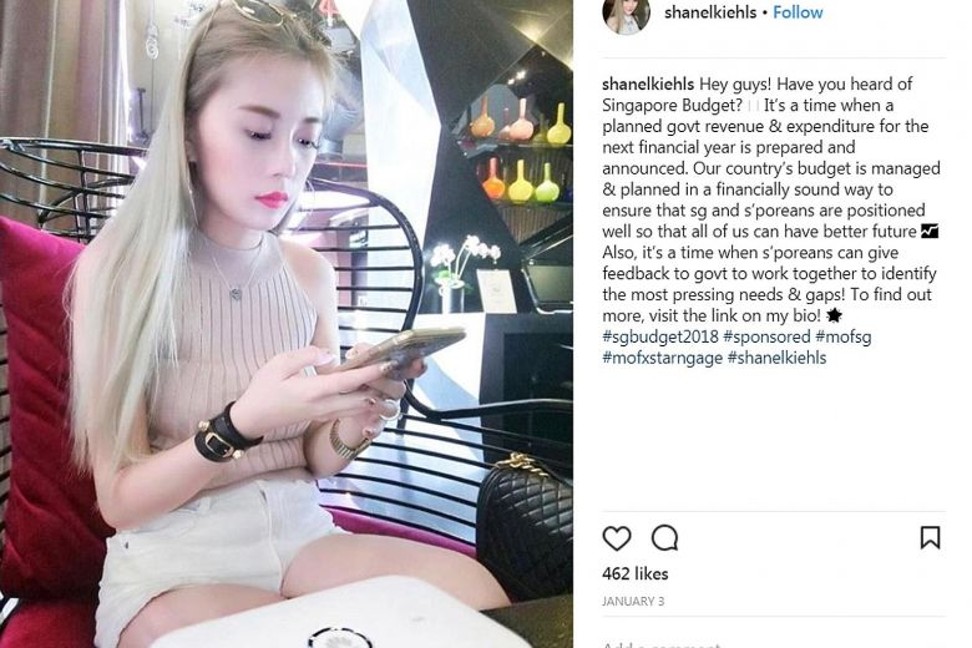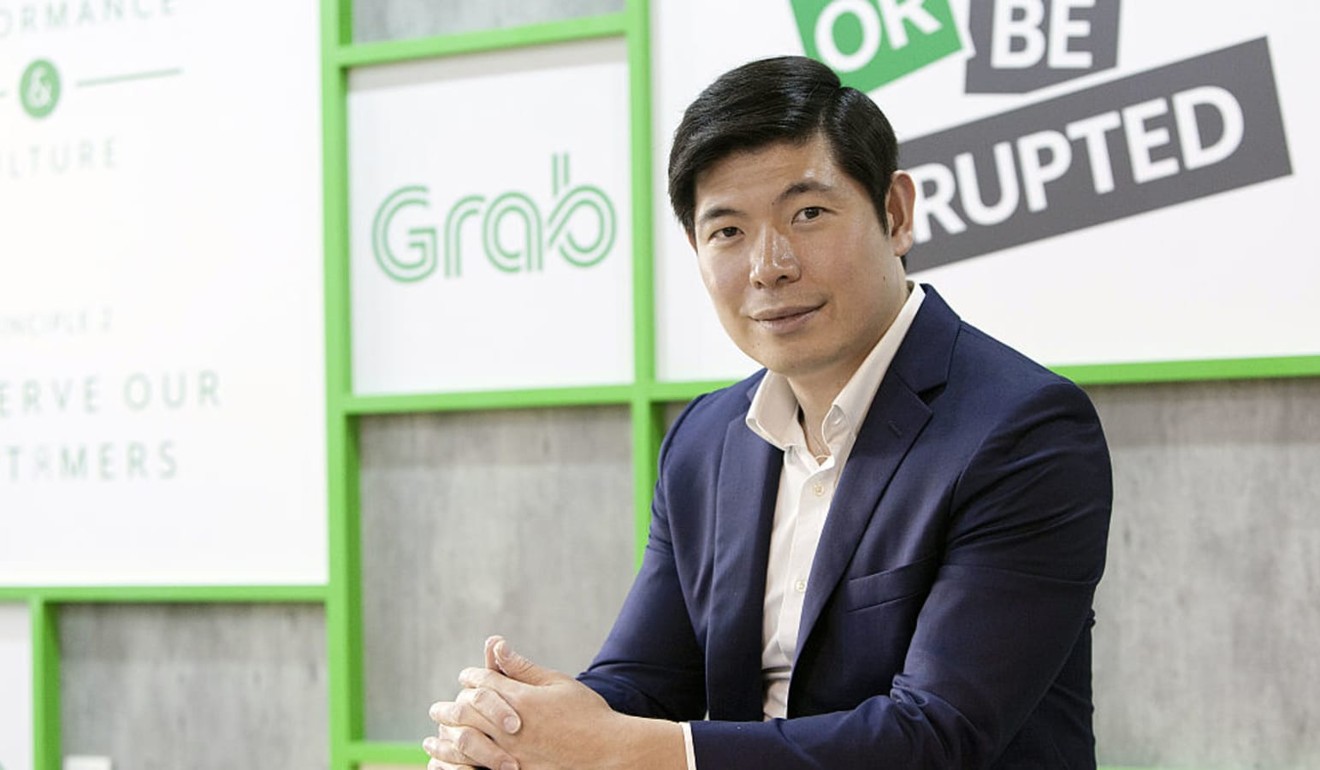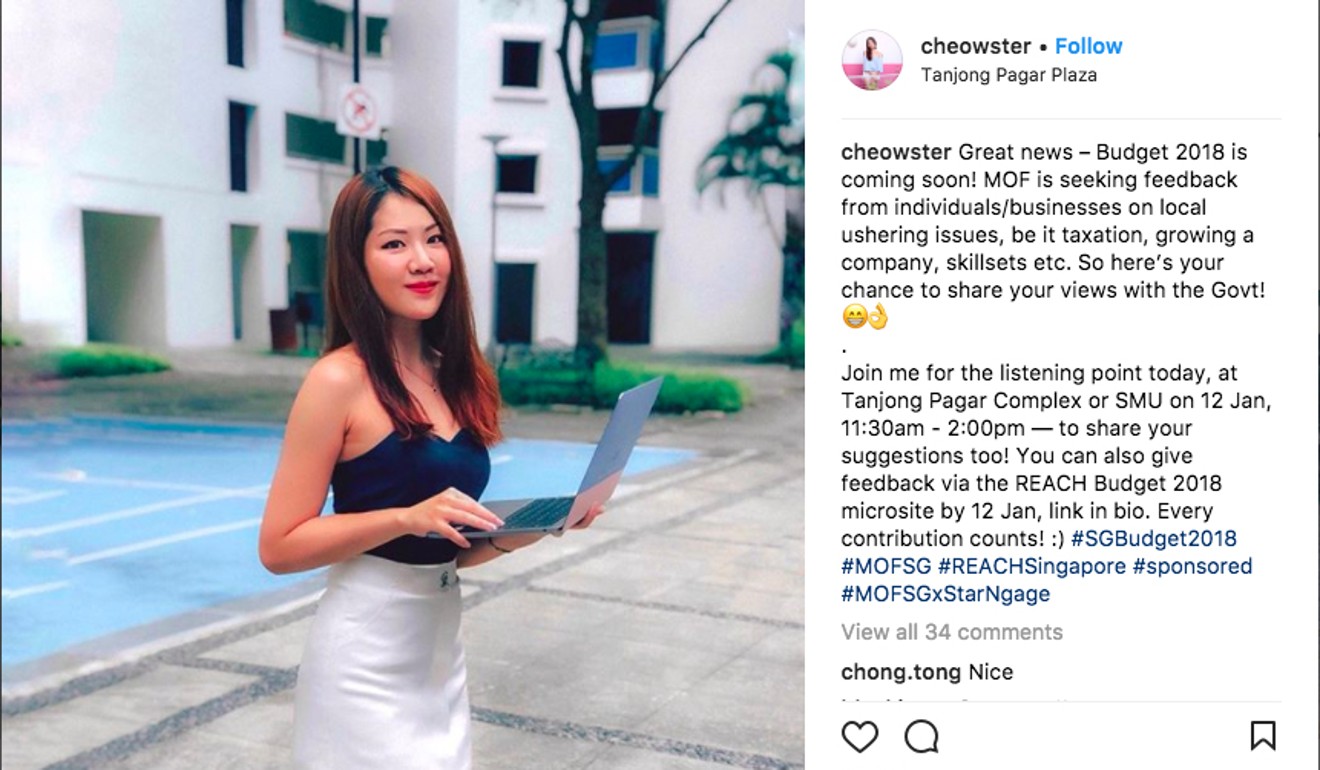
Why social media influencers and business may not be a good mix – business influencers should be experts who command respect
- The Singapore government’s recent attempt to use Instagram influencers to promote the budget was a total failure
- Other marketers are learning the lesson that you need to hire credible online influencers to promote businesses
When Singapore’s Ministry of Finance commissioned influencers to help promote the national budget to younger Singaporeans in 2018, the campaign was a dismal failure. The fashion and beauty bloggers hired to help sell the budget were widely seen as totally unqualified to discuss high finance.
“I imagine somebody decided: ‘Lets get young people to understand the budget’,” says Andrew Taylor, head of public relations at the media and advertising giant Ogilvy Asia-Pacific.
“It’s an easy trap to fall into – they are a young demographic, birds of a feather flock together – and so ‘we will get like-minded people to talk to them’.
“But then, the audience doesn’t buy it, since it’s not the message they expect from a content creator, or from the Ministry of Finance. So they … are outraged that they are assumed to be so stupid.”

Singapore’s high rate of social media use creates a market ripe for social influencers. Yet as the Ministry of Finance realised, the credibility of influencers is essential for any message to take hold. That applies especially to business-to-business (B2B) influencers.
The most effective business influencers are those with expertise, experience and personal standing in their fields, and they are typically not paid for their efforts on social media.
An influential YouTuber or Instagramer who sprays in every direction might have mass appeal. If your business is a mass one, then you go with them. But the B2B space is almost always niche, so your influencer should be industry-centric
For example, Anthony Tan, co-founder and CEO of Singapore-based ride hailing app Grab, wields influence on social media channels including LinkedIn, Facebook and Twitter. He regularly shares his views via posts on digital transformation and his predictions on transport and mobility issues in Southeast Asia.
Business influencers should be respected for their knowledge and “should work towards telling stories and providing education instead of ad-like promotions that get on people’s nerves or are forgotten”, says Mark Chew, associate director at Advisors Alliance Group, a financial advisory firm in Singapore. “A business influencer must position him or herself solely to expand insight into their line of work and not to make a profit or get a business lead, which could damage their credibility.”
Along with expertise, B2B influencers must have “industry stature and presence”, says Darwin Sy Antipolo, principal consultant at PXD Labs, a Singapore-based digital agency. A business influencer is ultimately an extension of the organisation’s brand,” he says, adding that the influencer has to choose prominence within their industry, or in the wider social media sphere.

“An influential YouTuber or Instagramer who sprays in every direction might have mass appeal. If your business is a mass one, then you go with them. But the B2B space is almost always niche, so your influencer should be industry-centric,” he says.
“Influencer marketing can be summed up in one word: content,” says the co-founder and chief operating officer of travel app Klook, Eric Gnock Fah.
“We don’t see an influencer as just another beautiful face,” he says. “In fact, in certain countries, we’ve worked with people who are not classified as influencers. What matters is the content they create; it may be a well-written story or a beautifully shot video – that’s influencer marketing to us.”

Business influencers can be co-founders, advisers, investors, and top-performing employees, providing data and insights from various perspectives, says Adrian Tan, head of labs for Asia-Pacific at WeWork, a commercial real estate and shared workspaces firm.
“Content shared by these individuals should help their followers understand diverse and different business thinking, and give business owners the opportunity to bounce ideas [around] and compare notes with their peers,” Tan says.

Debbie Lin, brand solutions manager for a social video agency, says marketers should make sure that messages are not crowded out by like-minded influencers. “Certain markets can get a bit saturated, especially when there aren’t that many super big influencers,” she says, citing business and travel magnate and founder of the Virgin Group, Richard Branson, and founder of the Huffington Post Arianna Huffington as examples of the latter.

More importantly, business influencers have to take care not to sound artificial. “Viewers are definitely a lot smarter these days. They can tell when something is forced and then they disregard it completely,” Lin says.
As for the Singapore government, aside from its budget disaster it has had success using influencer marketing. That was one component of its ‘Passion Made Possible’ campaign, a Singapore Tourism Board promotion to help sell Singapore to the world, notes India-based writer and consultant Monishankar Prasad, who lived in Singapore for 10 years.
When it comes to promoting Singapore, business influencers, not just the government, have a role to play – such as by highlighting the success of home-grown Singapore enterprises, says Timothy Gan, executive insights leader at Isentia, a media intelligence agency.
“I see influencers having a role in shaping the brand perception of Singaporean establishments and giving them an edge in nurturing their reputations,” Gan says.
“Tech company Grab’s track record of being a fast-moving ‘unicorn’, local interior design firm Weiken’s consistent customer stream, and Singapore Airlines’ approach to sway the negative chatter that may surround the organisation in times of crises, are Singaporean success stories that influencers should mention more,” he says.
Purchase the China AI Report 2020 brought to you by SCMP Research and enjoy a 20% discount (original price US$400). This 60-page all new intelligence report gives you first-hand insights and analysis into the latest industry developments and intelligence about China AI. Get exclusive access to our webinars for continuous learning, and interact with China AI executives in live Q&A. Offer valid until 31 March 2020.

